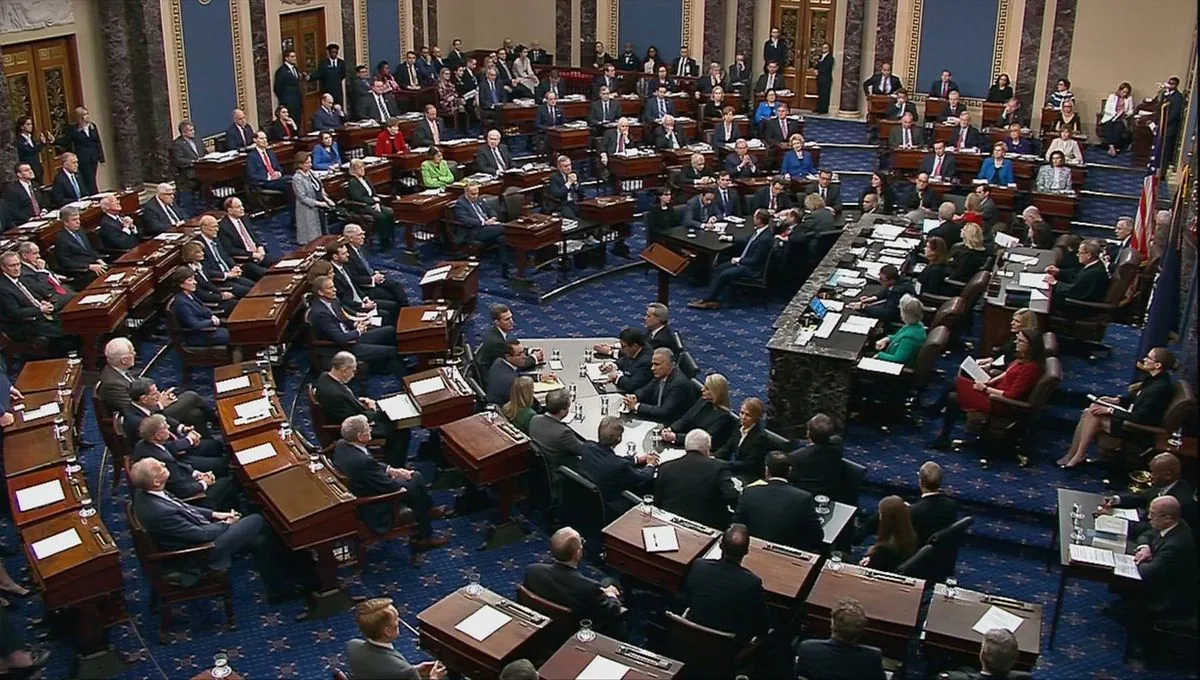Senate Votes to Hold Hospital CEO in Contempt, Seeks Criminal Charges
In a rare move, the U.S. Senate unanimously voted to hold Steward Health Care CEO Ralph de la Torre in contempt for defying a subpoena. The Justice Department is asked to pursue criminal charges, marking the first such request since 1971.

In a significant development, the U.S. Senate has unanimously voted to hold Ralph de la Torre, CEO of Steward Health Care, in contempt of Congress. This decision, made on September 25, 2024, marks the first time in over five decades that the Senate has requested the Justice Department to pursue criminal charges against an individual.
Steward Health Care, a for-profit company owning approximately two dozen hospitals across the United States, is currently undergoing bankruptcy proceedings. The company has been seeking to sell its facilities amidst financial turmoil. This situation highlights the growing trend of hospital bankruptcies, particularly affecting rural areas, which has been a concern in the healthcare industry.

The Senate's action stems from de la Torre's failure to comply with a congressional subpoena, showcasing the legislative body's investigative powers. The Senate Health, Education, Labor and Pensions Committee, established in 1869, has been investigating Steward's financial practices. This committee held two bipartisan hearings to examine the health system's troubled operations and potential risks to patients.
Senator Edward J. Markey of Massachusetts criticized Steward's leadership, stating:
"Steward, led by its founder and CEO Dr. Ralph de la Torre and his corporate enablers, looted hospitals across the country for their own profit. While they got rich, workers, patients and communities suffered."
This situation underscores the broader issues within the U.S. healthcare system, which is the most expensive globally, consuming about 17% of the country's GDP. The average hospital stay in the U.S. costs approximately $11,700, contributing to the financial strain on both patients and healthcare providers.
The Senate's investigation revealed a stark contrast between de la Torre's compensation and the financial struggles of Steward's hospitals. This disparity reflects a wider trend in the healthcare industry, where the average CEO-to-worker pay ratio is about 166 to 1.
Senator Bernie Sanders, chair of the Senate health panel, emphasized the importance of accountability:
"Even though Dr. de la Torre may be worth hundreds of millions of dollars ... if you defy a congressional subpoena, you will be held accountable, no matter who you are or how well you connected you may be."
De la Torre's legal representative, Alexander J. Merton, defended his client's refusal to testify, citing ongoing bankruptcy proceedings and a federal court order. This legal standoff highlights the complex interplay between corporate governance, healthcare management, and legislative oversight.
The Senate's decision to pursue criminal contempt charges is reminiscent of recent actions by the House of Representatives against former Trump administration officials. These cases resulted in four-month prison sentences, demonstrating the serious consequences of defying congressional subpoenas.
This event occurs against the backdrop of significant challenges in the U.S. healthcare system. With about 8% of Americans lacking health insurance and a projected shortage of 124,000 physicians by 2034, the industry faces substantial hurdles. Moreover, the fact that medical errors are the third leading cause of death in the U.S., after heart disease and cancer, underscores the critical need for effective healthcare management and oversight.
As the Justice Department considers the Senate's request, this case may set a precedent for future interactions between Congress and healthcare executives. It also raises important questions about the balance between corporate interests, patient care, and public accountability in the complex landscape of American healthcare.


































